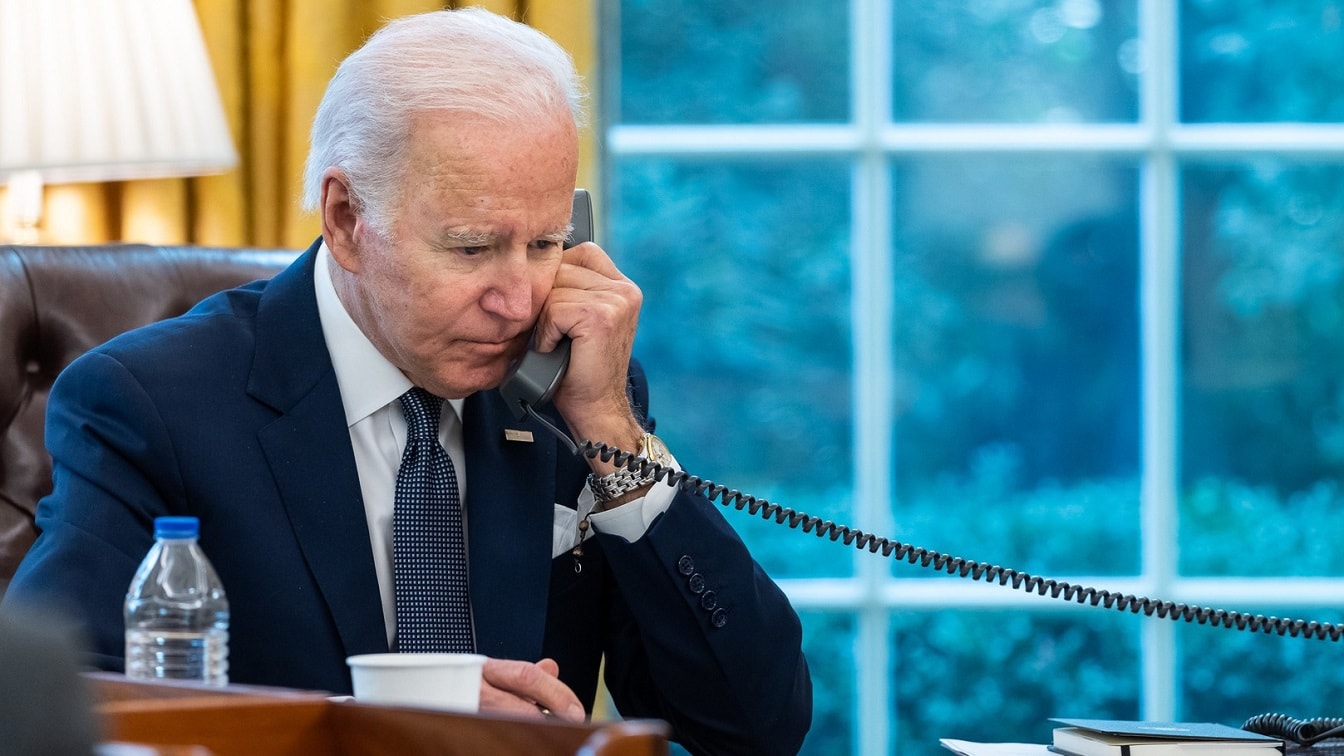President Biden’s announcement that he was taking executive action to forgive portions of student loan debt has raised novel legal questions. For months, as the student loan debate raged, questions about the legality of executive action to forgive student loans were raised. Obviously, the Biden administration determined that they did in fact possess the legal authority to forgive loans unilaterally, without congressional approval. Now, with conservatives, and even moderates, upset over the premise of student loan forgiveness, Biden’s legal authority to forgive loans will surely be challenged.
So the question will become quite pressing for the millions of borrowers that student loans affect: does Biden possess the legal authority to cancel student loans?
What the Law Says
Biden and his Justice Department are banking on the HEROES Act of 2003 to grant loan forgiveness. “The HEROES Act of 2003 gives the administration “sweeping authority” to reduce or eliminate student debt during a national emergency, ”when significant actions with potentially far-reaching consequences are often required,” The Associated Press reported. “The law was adopted with overwhelming bipartisan support at a time when U.S. forces were fighting two wars, in Afghanistan and Iraq. It gives the Education secretary authority to waive rules relating to student financial aid programs in times of war or national emergency.”
The war or national emergency? In 2020, then-President Trump declared a national emergency for the COVID pandemic, which remains in effect. Biden believes Trump’s still valid emergency declaration puts the HEROES Act in play. The argument is creative and optimistic. Not everyone is so optimistic.
Former counselor for Obama’s Education Department, Charlie Rose, was skeptical about the legality of Biden’s forgiveness plan. In a private memo that the Wall Street Journal obtained, Rose wrote, “If the issue is litigated, the more persuasive analyses tend to support the conclusion that the Executive Branch likely does not have the unilateral authority to engage in mass student debt cancellation.”
Naysayers of student loan forgiveness are pointing directly to words that Biden spoke himself: “I don’t think I have the authority to do it by signing the pen,” the president said in February 2021. And then there’s Nancy Pelosi, Speaker of the House, with another gem: “People think that the president of the United States has the power for debt forgiveness. He does not. He can postpone, he can delay, but he does not have that power. That has to be an act of Congress.”
Pelosi’s words may have been prescient; naysayers will certainly use similar arguments. “Because Mr. Biden used executive action, rather than legislation, to forgive the loans, legal challenges are expected,” The New York Times reported. “It is unclear, however, who would have the standing to press their case in court. A recent Virginia Law Review article argued that the answer might be no one: States, for example, have little say in the operation of a federal loan system.”
“Mr. Biden’s plan will test the legal limits of the federal government’s authority to cancel student debt,” the Wall Street Journal reported. “Its success could depend on how courts would interpret the education secretary’s powers under the 1965 Higher Education Act, which allows the secretary to ‘consent to modification’ of loans, and ‘compromise, waive, or release’ unspecified amounts of student debt. Advocates for broad cancellation say the lack of explicit constraints in the law is deliberate, giving the executive branch flexibility with its ‘compromise authority’ to manage its relationship with borrowers,” the WSJ continued. “They note that presidents of both parties have used the law to forgive debt on a more-limited scale.”
Lanae Erickson, a centrist think tanker, believes Biden’s forgiveness plan will be challenged on the same premise as the West Virginia v. Environmental Protection Agency case “in which the Supreme Court ruled the federal government can’t act on policy with broad economic significance without clear congressional authorization,” The Washington Post reported. Erickson is not positive borrowers will ever feel the relief of Biden’s loan forgiveness plan. “Advocates and policymakers who pushed to take this unprecedented step are responsible for also communicating to borrowers that there is a strong chance it will never come to fruition. Given that the application may not be available until the end of the year, the strong likelihood is that courts will enjoin this action before it gets started — leaving borrowers in limbo.’”
Prospective lawsuits are already being formulated. “The Job Creators Network, which promotes conservative economic policies, said it was weighing a lawsuit to try and block Biden’s plan,” the AP reported. “This executive overreach transfers taxpayer dollars from hardworking ordinary Americans and small businesses to disproportionately higher earners with college degrees,” said Alfredo Ortiz, president and CEO of the group. “It does nothing to address the underlying issue of outrageous college costs. Indeed, it rewards colleges for making education unaffordable and entrenches the failing status quo.”
Harrison Kass is the Senior Editor at 19FortyFive. An attorney, pilot, guitarist, and minor pro hockey player, he joined the US Air Force as a Pilot Trainee but was medically discharged. Harrison holds a BA from Lake Forest College, a JD from the University of Oregon, and an MA from New York University. He lives in Oregon and listens to Dokken. Follow him on Twitter @harrison_kass.

